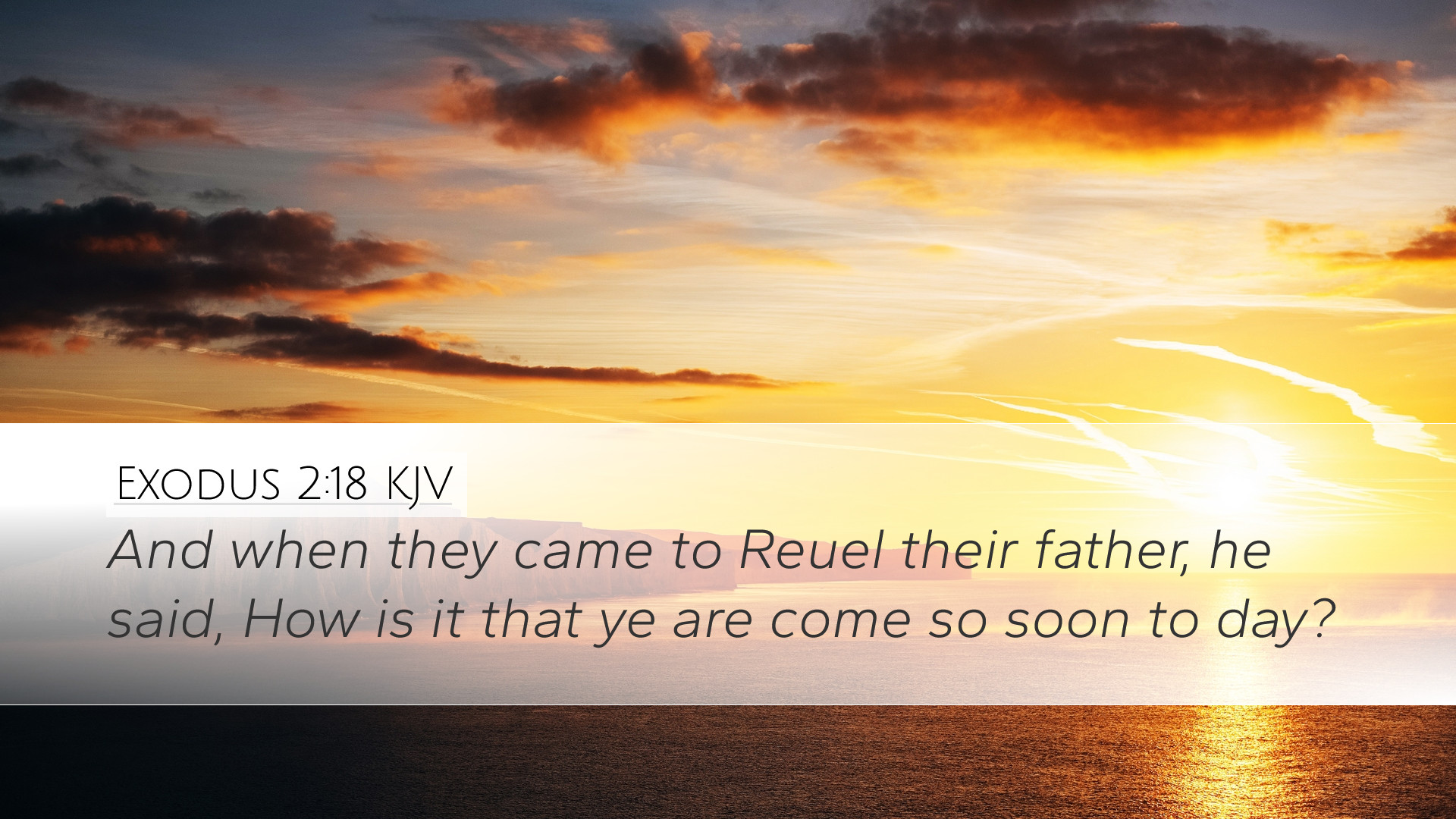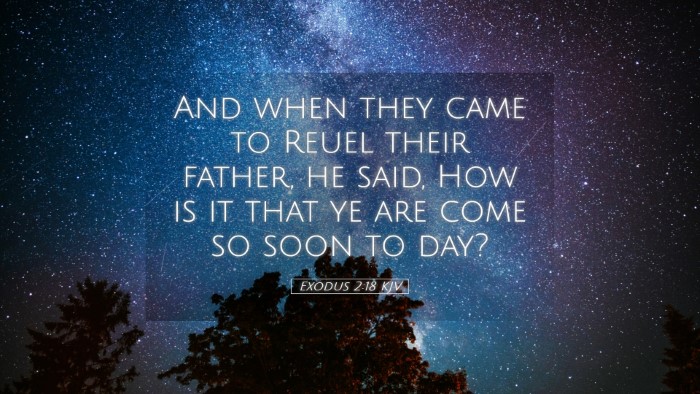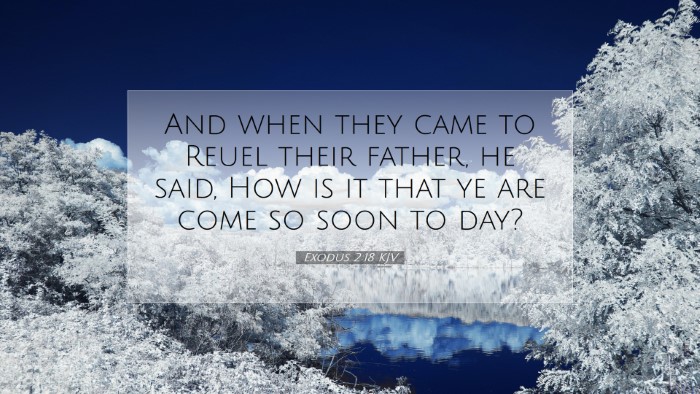Commentary on Exodus 2:18
Exodus 2:18 presents a pivotal moment in the life of Moses, revealing key themes of divine providence, social responsibility, and God's preparatory work in the lives of His chosen leaders. The verse states:
"When they came to Reuel their father, he said, 'How is it that you have come so soon today?'"
Contextual Overview
This verse occurs in the narrative where Moses, after fleeing Egypt, assists the daughters of Reuel (also known as Jethro) by defending them against shepherds at a well. It sets the stage for the introduction of Jethro, who will later play a significant role in Moses' life as his father-in-law and counselor.
Insights from Matthew Henry
Matthew Henry notes that Moses' actions not only demonstrate his character but also foreshadow his future role as a deliverer. Henry highlights the significance of the swift return of Jethro's daughters, suggesting that God's providence orchestrated the events to bring Moses into the family of Jethro. He interprets their prompt return as indicative of both divine timing and the favor Moses held in the eyes of the daughters.
- Divine Providence: Henry argues that God is working behind the scenes, preparing Moses for his future task. The quickness of the daughters' return implies a divine orchestration in the rescue of these women by Moses.
- Character Development: The commentary stresses that Moses’ defense of Jethro’s daughters reflects his innate sense of justice, a characteristic that would later surface in his leadership of the Israelites.
Insights from Albert Barnes
Albert Barnes provides further elucidation on the relational dynamics evident in this verse. He draws attention to the relationship between Jethro and his daughters, emphasizing the importance of family and the strength of a father’s role in guiding and assessing the actions of his daughters.
- Fatherly Concern: Barnes notes that Jethro's inquiry about his daughters' early return underscores a paternal vigilance. This concern establishes Jethro as both a wise and caring father, which is vital in understanding the subsequent relationship with Moses.
- Social Values: The mention of the daughters’ swift return can also relate to societal values of loyalty and protection within familial bonds. Barnes highlights the importance of community and familial support in their quick resolution of the difficulties faced at the well.
Insights from Adam Clarke
Adam Clarke's analysis ventures into the implications of this encounter as pivotal not just for Moses but for the broader narrative of Israel's deliverance. Clarke draws connections between Moses’ actions and the anticipated leadership qualities required for the Exodus.
- Leadership Preparation: Clarke underscores that assisting Jethro's daughters serves as a microcosm for Moses’ future leadership, emphasizing themes of compassion and defense of the oppressed.
- Cultural Significance: He points out how this event illustrates the cultural practices of hospitality and the importance of conquering challenges together as a community in the ancient Near Eastern context.
Theological Implications
Many theologians observe that God’s influence in seemingly mundane events reveals a central theme within Scripture: God prepares His servants through life's circumstances leading to significant outcomes. Here, Moses’ unanticipated encounter with Reuel’s daughters becomes a critical junction in his journey towards leadership and liberation for Israel.
- God's Sovereignty: The passage illustrates the sovereignty of God in orchestrating events that lead to His intended outcomes, such as the eventual deliverance of Israel.
- Integration of Identity: As Moses integrates into Jethro’s family, we see a foreshadowing of how God merges different cultures and communities to fulfil His redemptive plan.
Practical Applications
For pastors and theologians today, Exodus 2:18 encourages reflection on how God prepares individuals through seemingly ordinary circumstances. The concept of divine providence in our lives and ministries should prompt a deeper inquiry into how God might be using our present experiences to shape us for future roles.
- Awareness of Divine Guidance: Believers are encouraged to recognize God's hand in their everyday life, seeing beyond immediate circumstances to the larger picture of their divine calling.
- Embodying Justice: Moses’ actions teach vital lessons on standing up for those who are oppressed and marginalized, a pressing social obligation for contemporary church communities.
Conclusion
The commentary on Exodus 2:18 elucidates the richness of Moses' early experiences and highlights God's providential preparation for future leadership. This serves as an encouragement for believers to find meaning and direction in their own life events, trusting that God is continually at work to fulfill His purposes through them.


